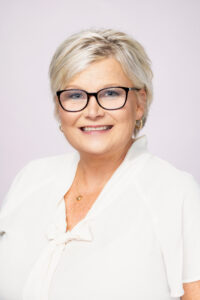Workforce
Healthcare Project Management Training
Leading projects in a healthcare setting is complicated. Healthcare projects often cross departments that are naturally siloed in most healthcare organizations. This means that leaders must plan carefully and enlist colleagues to work on their projects.
Managing budgets, timelines, and vendors, as well as dealing with unanticipated challenges are critical skills not typically taught in most healthcare professional programs, so they usually must be learned elsewhere. The best project management courses and curriculums incorporate experiential learning based on the latest science about adult learning. They also offer a significant amount of interactive components and provide credits towards a project management certificate.

Master the skills you need to manage complex healthcare projects and to strategically guide your organization.
Effective project management can help control costs, reduce risk, and improve outcomes. Learn project management concepts, methodologies, and techniques required to lead healthcare projects with confidence and earn PMI credits along the way.
Project Management Foundations for Healthcare
Project Management Foundations for Healthcare is for anyone who participates or is looking to become involved in projects in the healthcare industry, from any area, in any role, with or without any prior formal project management training or prior project experience. This is a practical, hands on, “learn-by-doing” course. It presents foundational concepts, tools and best practices in Project Management, which participants then use to plan, organize and control a “real” project, from start to finish. This course is designed to teach skills and techniques that can be immediately and easily applied on-the-job.
Beyond Foundations: Determining Business Requirements in Projects With Varying Degrees of Uncertainty
Many of us work on projects, as team members, line managers, users, support groups or project managers. Most of these projects are cross-functional and/or cross-business, in that they span multiple departments, groups and borders within an organization.
One of the top reasons projects fail, is that they do not deliver the product, service or result that the customer actually needed, as opposed to what they said they needed or thought they needed! Even if the project finishes on time, on budget, on specification, is it considered a success if it did not produce the value actually needed by the customer? Worse yet, questions are frequently asked about the project’s origin, mission, business objectives or, in fact, “should there even have been a project?”
This workshop covers basic, fundamental things the project manager and their team need to know to avoid these major pitfalls, whether they are working on a project with a lesser or greater degree of overall uncertainty. It teaches participants how to work with the customer to derive “what is actually needed”, in projects with varying degrees of uncertainty. Traditional methodologies are presented and practiced, for those projects with relatively little uncertainty (predictive/“waterfall” projects). Agile methodologies are presented for projects with a greater degree of uncertainty (adaptive projects). Increasingly, organizations and project teams tend to adopt hybrid methodologies to manage projects, by tailoring their approach to the specifics of the organization, the environment, the product, etc.
Whatever methodology is practiced, the goal remains the same: build the right thing, the first time!
PMI® Credits
Total Systems Education is a Premier Approved Training Provider (ATP) of the Project Management Institute (PMI®). All their courses are approved by PMI® and award Contact Hours (classroom hours) or PDUs (Professional Development Units) toward acquiring or maintaining a PMI® Certification.
Upon completion of the Foundations course, participants will receive a certificate of completion and 24 PDUs or Contact Hours. An additional 24 PDUs or Contact Hours will be awarded upon completion of the Beyond Foundations course. These credits never “expire” and can be applied at any time in the future toward a PMI® certification.
Foundations for Healthcare Course
- Advocate for a proper project initiation process, including the creation of a Project Charter and the clear definition of project scope
- Apply tools for identifying, organizing and estimating the project work
- Deal with Project Risk and apply Risk Mitigation strategies to safeguard the project
- Identify and include the work needed to account for Risk and resolve Assumptions
- Appreciate the demands of managing project resources and the implications of different project team structures on resource assignments and scheduling
- Delegate work, motivate and facilitate professional and personal growth for the Project Team
- Develop a realistic and defensible Project Schedule, that incorporates the work, work estimates and estimate loading factors
- Effectively negotiate with Project Stakeholders about everything, throughout the project
- Understand and employ Product Scope and Quality Management
- Implement a Change Management and Reporting Plan
- Communicate effectively with all Stakeholders
- Track and Report the status of the project and deliverables, for early problem identification and resolution
- Apply project closing processes and close the project properly
- Understand the use of project software tools to help plan, schedule and track the project
Beyond Foundations Course
- Identify the Stakeholders involved in the creation of Business Requirements and understand their role in the requirements project
- Understand the origins of Agile and the needs it was born to fulfill.
- Understand the value and influence of the origins of Agile methodologies
- Select the appropriate project methodology (Waterfall, Incremental, Agile or a hybrid) depending on the project’s level of maturity and amount of changing requirements and changing technologies
- Understand the concepts of Business Case, Business Requirements and Functional Specifications (Solutions Requirements)
- Apply a framework for producing Business Requirements for new and/or improved products, services, and processes
- Understand how to apply several tools for creating Business Requirements, e.g., Elicitation Methods, Cross-functional Process Mapping, Fishbone (Ishikawa, Cause and Effect Diagrams), MuSCoW Analysis, Cost Benefit Analysis, Pareto Analysis, ROI, etc.
- Use tools to capture and analyze the “current-state” (as-is), identify potential problem and opportunity areas, identify disconnects, and perform gap-analysis to develop the business requirements of potential “end-states” (“to-be” states)
- Understand and address the impact of change on the people, and how this affects the business requirements process.
- Understand process control and the important difference between Defined and Empirical Process Control.
- Apply Agile Values and Principles to project management.
- Understand the framework of the popular Agile practices of Scrum and Kanban
- Apply Agile methodologies to gathering Business Requirements that express the real needs of the customer (iterative planning, user stories, Product Backlog, Sprint Backlog)
- Apply Agile methodologies to estimate the project work with accuracy, while managing risk and focusing on quality.
- Understand the principles of tracking and control in Agile projects.
Please check back later.
Please check back later.
Please check back later.
 Sacha Adele Field (Soja), PMP, CPP, CSSGB, LEED Green Assoc.
Sacha Adele Field (Soja), PMP, CPP, CSSGB, LEED Green Assoc.
Sacha has developed her skills as a project leader, mentor, and negotiations concierge with over 30 years of experience in cross-functional project management. She worked with change management and agile methodologies before those terms were coined and, whatever you do, don’t tell her that “we have always done it that way.”
Sacha started her career at Morgan Stanley in NYC, relocated to Los Angeles where she ran projects in both tv and film production (Agile anyone?). She then went on to manage themed entertainment engineering and fabrication projects (think exploding barrels and Tinkerbell) where she honed her skills in international negotiations and leading cross-functional teams. As Director of Project Management at the California Science Center, Sacha successfully negotiated everything from exhibit design and fabrication to construction and building air rights among the Science Center, Foundation, and State of California representatives. No small task. In 2010 Sacha’s passion for teaching and work as a practitioner collided. She met the Total Systems Education, Ltd. (TSE) team during this time, and also became the Lead Instructor for PMI Metrolina’s PMP prep course. Sacha was hand-picked to join the launch team at the Museum of the Bible in Washington, DC. in the role
of Director of Operations for the Museum. After opening the museum in a mere 18 months, Sacha accepted a role as Director of Property Management at the Catalina Island Conservancy, overseeing 42,000 acres of protected and privately owned land. Whew, what an adventure!
In 2022, Sacha reignited her passion for helping women learn how to negotiate transitions in their lives. In 2023, she eagerly joined the team at TSE as Director of Innovation. Sacha’s goal is to combine her own unique skillset with TSE’s extensive project management expertise to positively impact as many lives as possible.
 Stephen A. Campitelli, PH. D, PMP®, PMI-ACP®, CSM
Stephen A. Campitelli, PH. D, PMP®, PMI-ACP®, CSM
Stephen Campitelli has been a management, systems and audit professional for over twenty years. His early career began in programming (within IBM mainframe environments), and then progressed through Systems Analysis and Design, and Project Management of on-line, data base and distributed data-base applications. He has also managed projects to research and advise corporate management on the application of artificial intelligence, databases and software ergonomics within the banking environment. While working at one of the largest banks in the United States, Stephen also ran a technology support team within the Auditing Division. He was responsible for designing and implementing data analysis and reporting systems for the corporation. This outstanding member of the Total Systems team brings personality, strong managerial and audit backgrounds, and detailed software technical skills including the use of Relational Database and Object-Oriented Technologies.
Stephen has developed and taught a number of courses, for both technical and business audiences. Course topics include Project Management, Business Analysis, PMI-PMP®/CAPM® Exam Prep, The Development Life Cycle, Systems and Structured Testing for the Technical Staff (Dynamic Testing) and Non-Technical Users, Nontechnical Business Analysis, Determining Business Requirements and Creating Functional Specifications, Data Modeling and Design, and Testing Techniques. Stephen is also known for being the lead developer of our critically acclaimed workshop with the simple name, “Communicate or Die!” Most recently, Stephen was the lead developer of our newest Project Management for Healthcare Certificate.
Having begun his career in the mainframe world, Stephen remains on the leading edge of business technology in Project Management, Agile and Object-Oriented based applications. He is also a frequent speaker at testing conferences and presents training courses covering this critical issue.

